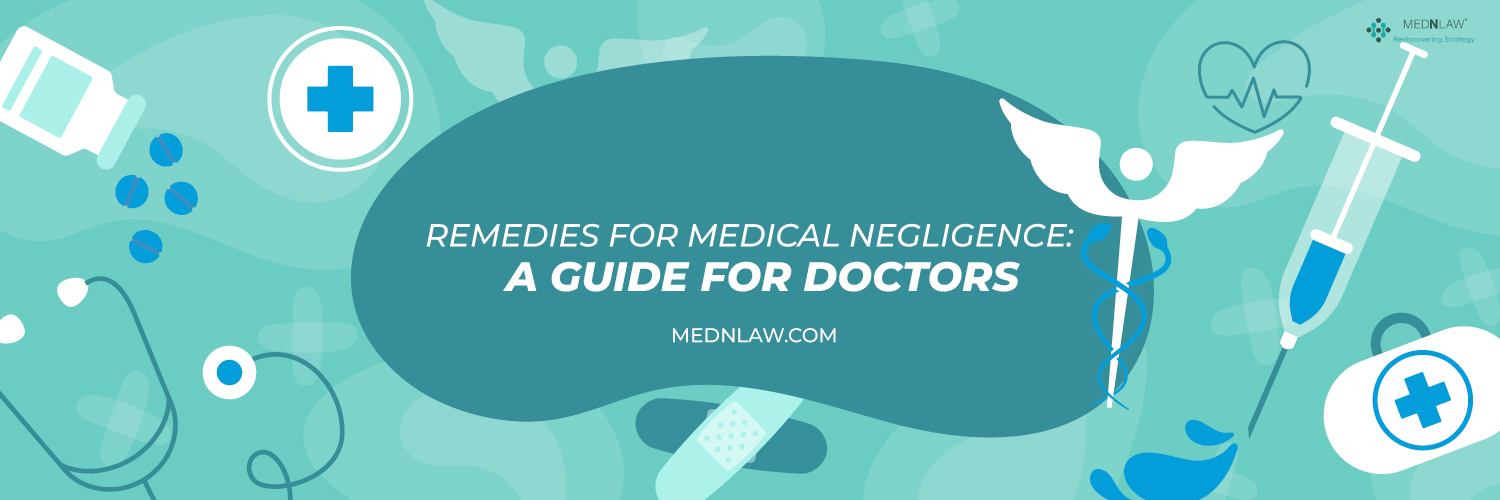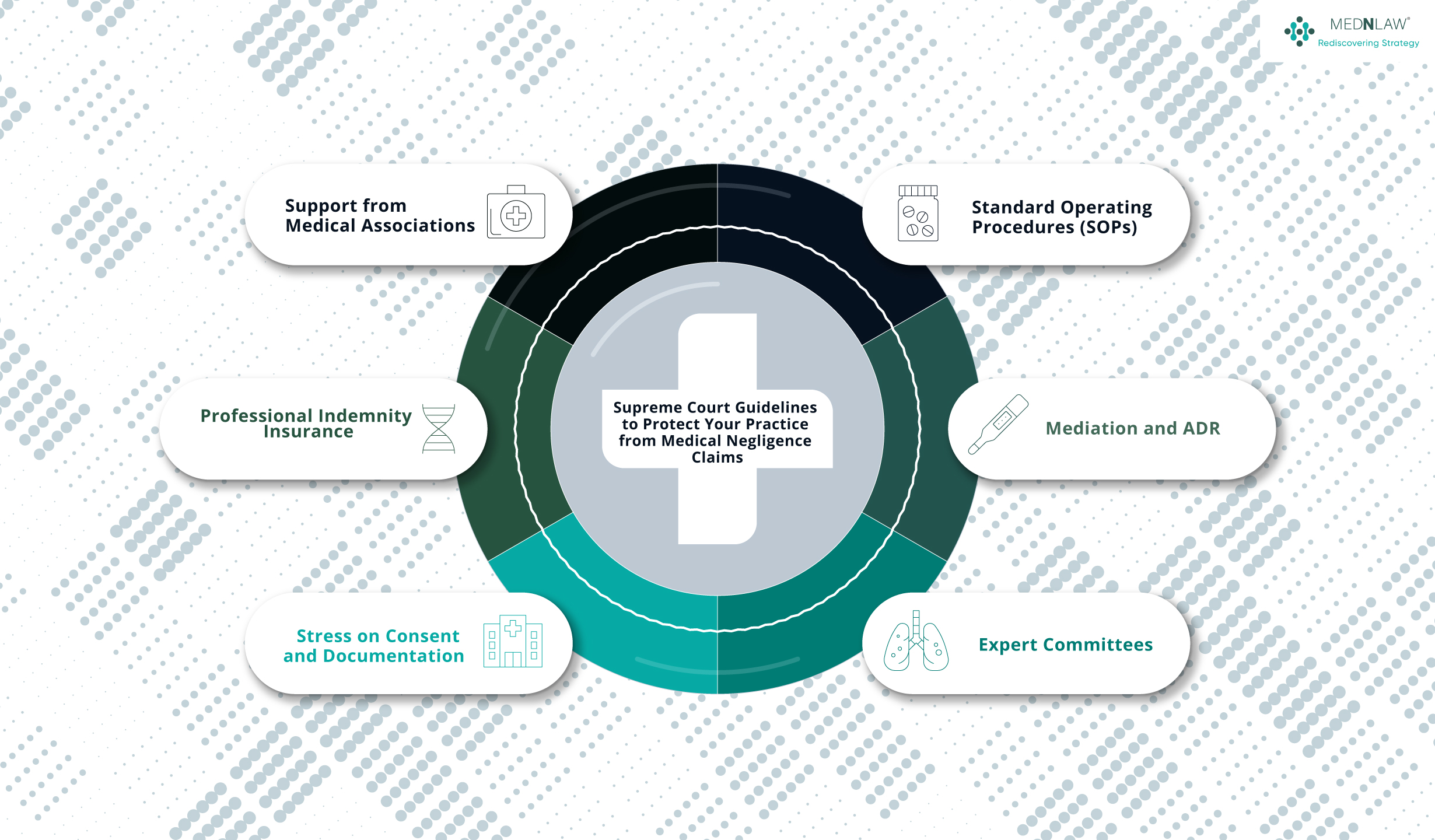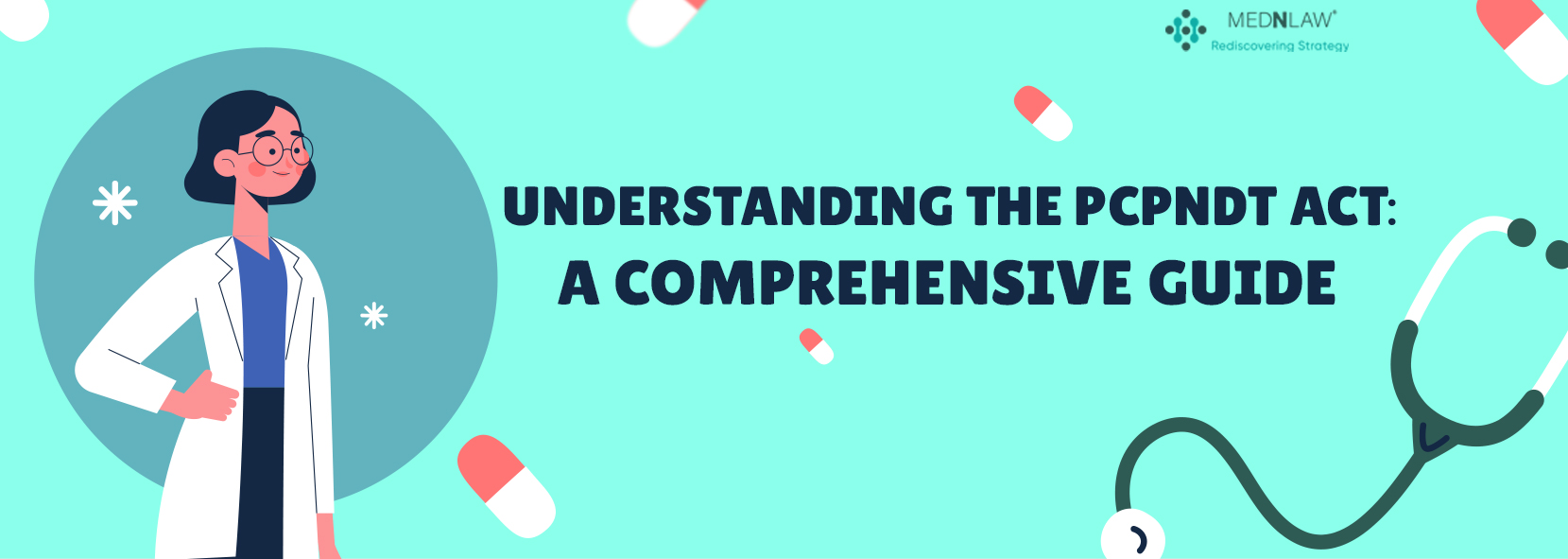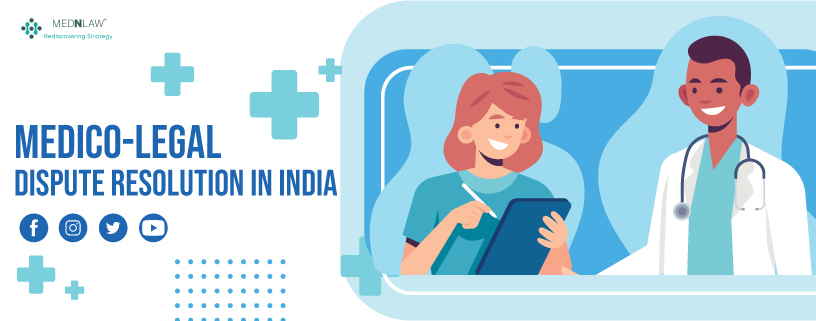

Medical negligence occurs when a medical provider fails to observe the care their field of practice would generally demand and harms a patient. The breach of duty might occur due to errors in diagnosis, treatment, surgical procedures, or post-operative care.
Thus, several remedies are available under Indian law and other relevant frameworks to redress grievances. This article outlines the remedies for medical negligence, examining the legal, administrative, and ethical dimensions.
Legal Framework – Remedies for Medical Negligence in India
India’s legal system provides multiple provisions for seeking remedies for medical negligence. Our legal system not only protects the patients from the medical negligence but also provides for the doctors against the false medical negligence suits.
Remedies for Medical Negligence for Patients
India’s legal system provides multiple provisions for medical negligence. These laws and provisions fall into three major categories: civil, criminal, and consumer protection laws.
Civil Remedies for medical negligence
Tort Law :
Under tort law, patients can file a civil suit for medical negligence against the professional or hospital for damages. The main objective of the suit is to get compensation for the harm caused. Let’s learn more about the types of damages and the burden of proof required to file this lawsuit.
- Types of Damages – These include compensatory damages to cover medical expenses, lost income and emotional distress. Punitive damages are also provided in rare cases to deter egregious negligence.
- The burden of Proof – It is very important for the patient to prove that the healthcare provider has not acted according to the standard of care and that the action has directly caused harm.
Breach of Contract :
If the patient has a contract with the doctor in the form of informed consent, and the doctor deviates from the contact. In such cases, the patient can claim for breach of contract.
Criminal Remedies for Medical Negligence
Indian Penal Code (IPC) :
The provision deals with criminal offences in India, which are defined by different crimes and punishments stipulated for each of them. It further includes major crimes such as murder, theft, defamation, and fraud, to name a few. IPC also deals with cases of medical negligence.
- Section 304A – This section addresses death caused by medical negligence. The Section 304A can provide medical professionals with imprisonment of up to two years or a fine, or both.
- Section 337 & 338 – Deal with causing or grievous hurt by a negligent act endangering human life.
Bhartiya Nyaya Sanhita (BNS) :
The Bharatiya Nyaya Sanhita, as proposed in 2023, is an attempt to modernize the criminal laws of India by replacing the IPC with a focus on speedy justice, stricter penalties, and contemporary legal needs and principles.
- Section 106 – This section discusses death by negligence.The act does not amount to culpable homicide and shall be punished with imprisonment of either description for a term which may extend to five years and also could be liable to a fine. Furthermore, if the act has been done by a registered medical practitioner while performing medical procedure, he shall be punished either for a term which may extend to two years, and shall also be liable to fine.. The act does not amount to culpable homicide and shall be punished with imprisonment of either description for a term which may extend to five years and also could be liable to a fine. Furthermore, if the act has been done by a registered medical practitioner while performing medical procedure, he shall be punished either for a term which may extend to two years, and shall also be liable to fine.
- Standard of Proof: Criminal cases require proof “beyond a reasonable doubt,” making it more challenging for patients to succeed. Therefore, it is vital to present relevant proof of medical negligence.
Consumer Protection Act, 2019
Consumer Protection Act 2019 came into force on July 20, 2020. The Consumer Protection Act of 2019 replaces the 1986 act in order to strengthen the rights of consumers. It deals with today’s issues, such as e-commerce. It also discusses misleading advertisements. Moreover, the Central Consumer Protection Authority (CCPA) applies rights and regulates unfair trade practices. It further penalises false advertisements.
The Act further streamlines dispute resolutions by making them digital and allowing for mediation. This increases consumers’ rights to be protected against contracts, products, and grievances. Another aspect in which the CPA 2019 has improved is penalties and accountability.
It wants to empower its consumers with its faster redressal mechanisms. According to the Consumer Forums, the Act allows patients to file complaints in consumer courts against healthcare providers for “deficiency in service.”
The punitive damages vary depending upon the forum the case is in and the jurisdiction. Some of them are mentioned below.
- District Forum – For claims up to ₹10 lakh.
- State Commission: For claims between ₹10 lakh and ₹1 crore.
- National Commission: For claims above ₹1 crore.
Simplified Process: The Consumer Protection Act 2019 enables faster resolution and lower costs than traditional litigation.
Judicial Precedents in Medical Negligence
Indian courts have given some landmark judgments which mould the remedies of medical negligence as follows:
Indian Medical Association v. V.P. Shantha (1995)
This case brought medical services under the Consumer Protection Act. Furthermore, it also simplified the remedies for medical negligence for the patients.
Jacob Mathew v. State of Punjab (2005)
The case provides the guidelines to determine criminal negligence. In this case the court ruled that only gross negligence should attract criminal liability.
Samira Kohli v. Dr. Prabha Manchanda (2008)
In this case, the court ruled that the Informed consent is important. In informed consent, the Doctors have to explain the treatment’s risks, benefits, and alternatives to the patient before starting the treatment.
Kunal Saha v. Dr. Sukumar Mukherjee (2013)
This case awarded one of the highest compensation amounts in a medical negligence case, which further reinforced accountability in the healthcare sector.
Protection of Doctors Against False Allegations
There are various remedies for medical negligence that aim at protecting patients. However, it is equally important to protect healthcare providers from false or frivolous medical negligence claims. Furthermore, the mechanisms to achieve fairness exist both in the form of law and institutions.
Guidelines by Supreme Court
There have been various judgments that provided healthcare professionals and institutions immunity against frivolous criminal complaints. For example, in Jacob Mathew vs the State of Punjab (2005), the Supreme Court ruled that for criminal liability of a doctor, gross negligence or recklessness should be established beyond any reasonable doubt. This landmark judgment protected doctors against frivolous criminal complaints.
Standard Operating Procedures (SOPs)
It is vital to follow the established SOPs in diagnosis and treatment. This can later be used by the medicos as proof of due diligence, which can help doctors defend themselves.
Professional Indemnity Insurance
Doctors and hospitals can take professional indemnity insurance to cover legal costs and compensation claims based on negligence allegations.
Support from Medical Associations
Organisations such as the Indian Medical Association (IMA) also offer legal and ethical support to doctors who are accused of negligence. Also, you can always contact healthcare law compliance institutions for a better understanding of the situation.
Mediation and ADR
The ADR mechanisms, like mediation and arbitration, can resolve disputes without causing harm to the reputation of the doctor through prolonged litigation.
Expert Committees
Courts usually rely on expert committees to evaluate the standard of care offered by the accused doctor. This way, medical decisions are reviewed by qualified professionals.
Stress on Consent and Documentation
It is integral to retain proper records and obtain valid consent, which is a key defence against the charge of negligence. This is undoubtedly one of the best remedies for medical negligence in India.
Safeguard under the Consumer Protection Act
The Consumer Protection Act enables doctors to challenge allegations in an environment that provides for effective and balanced redressals.
Challenges in Getting Remedies for Medical Negligence
Awareness Deficiency – Many patients do not know about their rights or the mechanisms to lodge a complaint.
Proving Negligence – To show that there was a causal connection between the medical professional’s actions and the resultant harm would be very complex.
Technical Difficulty – Medical cases involve many expert witnesses; this is often very technical, thus very difficult for a layperson to deal with.
Tedious Process of Law – As we all know, it can take years for the court to give some judgement. This further deters patients or even to the medicos to seek remedies for medical negligence.
Cost – Litigation and expert consultation fees are cost-prohibitive for many patients. This is one of the primary reasons why many patients and doctors cannot seek help from the court.
Remedies for Medical Negligence: Building Strategies
Public Awareness Programmes – Patient rights and redressal available should be brought to the attention of patients through public awareness campaigns.
Simplified Complaint Procedure – It is critical to streamline the complaint procedure, particularly for consumer courts and regulatory agencies.
Capacity Building – Educating the medical professionals and judiciary members about negligence laws and ethical practices.
Technology Application – The EHR may be used for greater transparency and accountability.
Improving ADR Mechanisms – Encourage mediation and arbitration as viable alternatives for the amicable resolution of disputes.
Alternative Dispute Resolution Mechanisms
Alternative dispute resolution mechanisms are an efficient and time- and cost-efficient way to settle cases rather than resort to the court. Some mechanisms are:
Mediation – Mediation involves communication between the patient and healthcare provider so that both may agree to a mutually acceptable settlement. It also maintains relationships and avoids lengthy legal battles.
Arbitration – An independent arbitrator assesses the case and provides a binding judgment through arbitration. Arbitration is less formalised than litigation, but it still follows a structured approach to resolution.
Negotiation – This means the parties can settle the disputes directly without involving third-party mediators or arbitrators. Further, this method is often faster and friendlier.
Conclusion
Remedies for medical negligence in India are diverse, ranging from legal to administrative and alternative mechanisms. Although substantial advancements have been made in safeguarding the rights of patients, these extend to long-drawn litigation processes, unawareness, and technical issues. The betterment of legal frameworks, propagation of ADR mechanisms, and education of patients and healthcare providers in India will act as the key towards a redressal mechanism which is fair and effective for this ever-growing society by ensuring that accountability goes hand in hand with fairness.
Here are some related articles you may find interesting
Copyright Mednlaw









